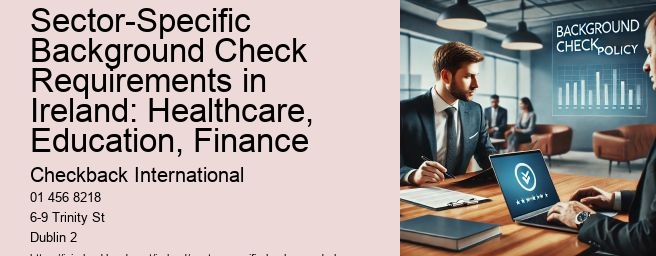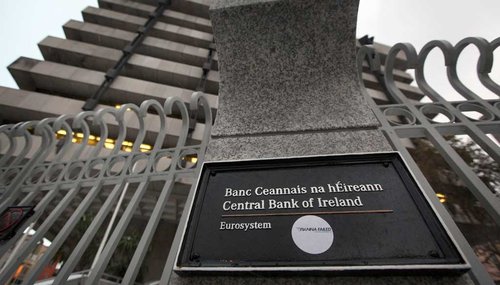

Most organizations include appeal instructions in their reports.
PSA background checks in Ireland are central to maintaining high standards in security-related occupations. Through examination of criminal history, educational and employment background, and personal character, these checks support the reliability and integrity of professionals in the security sector. The processes and regulatory compliance with PSA vetting shape security professions and meet current industry standards.
1.Complete screening checks meeting Airside Pass standard requirements
How Long Does a Background Check Take in Ireland? Timelines Explained
The European Criminal Record Check solution, operating in 26 EU states, provides verification through a central application process that combines checks from multiple jurisdictions into one report.
Importance of Background Checks in Ireland
Different Types of Background Checks
When checking backgrounds across international borders, Irish screening providers use specialized cross-border verification services to examine candidates who have lived or worked in other countries.
The Private Security Authority (PSA) acts as the main regulatory body for background checks in Ireland under the Private Security Services Act 2004. The PSA sets vetting standards through licensing requirements, including PSA 74:2019 for security service providers and PSA 42:2015 for private investigators.
Conclusion

2.Multiple address histories are combined into single ECRCs
Are There Specific Checks Performed for Remote Workers?
Frequently Asked Questions
Irish Business Compliance Requirements

These services check the equivalency of foreign credentials, verify the legitimacy of issuing institutions, and confirm compliance with local educational standards.
While conducting employment screening in Ireland, organizations follow the Data Protection Acts and GDPR requirements for collecting, processing, and storing personal information.
The first stage requires candidates to fill out a central European form, regardless of the number of EU states where they lived.
Checkback International helps with documentation tasks, offering staff support during business hours for questions and submissions.
Contact Information and How to Reach Checkback International
These practices help streamline vetting and uphold industry standards.

Irish vetting services check foreign qualifications through international networks and partnerships with educational institutions worldwide.
Adherence to regulations: The service must follow local and international compliance requirements, including the General Data Protection Regulation.
Conclusion

A background check in Ireland involves reviewing a person's criminal, financial, or personal records to assess their suitability for a role or position.
The duration can vary but typically takes between 1-2 weeks, depending on the type and complexity of the check.
Garda vetting is a specific type of background check required in Ireland for individuals working with children or vulnerable adults, involving checks against police records.
Yes, you must obtain consent from the individual before conducting any background checks in Ireland.
Not for all employees, but certain sectors such as healthcare and education may require comprehensive checks.
It includes checking for any criminal convictions or offences recorded against the individual.
Yes, individuals can request their own background checks in Ireland for personal review or to prepare for employment screenings.
Skipping background checks can lead to hiring unsuitable candidates, which may result in legal and reputational risks.
Yes, police clearance is a general criminal record check, while Garda vetting is specific to roles involving vulnerable groups and includes more detailed investigations.
You can request transcripts or degrees directly from educational institutions or use third-party services that specialize in educational verifications.
Information about spent convictions, certain types of personal data, and other protected characteristics under GDPR is off-limits unless specifically relevant and lawful to access.
International checks may involve additional complexities such as different laws, languages, and longer processing times.
No, background checks do not affect your credit score as they do not involve a credit inquiry that would impact the score.
Best practices include securing data in compliance with GDPR, limiting access to authorized personnel, and ensuring data is stored for only as long as necessary.
It depends on the industry and role, but typically every 2-3 years or when significant changes occur in the individual’s role or responsibility.
While not specific by law, many IT positions require checks due to access to sensitive or proprietary information.
GDPR regulates the processing of personal data, ensuring that background checks are conducted in a lawful, fair, and transparent manner.
Yes, but it must be done lawfully and with the individual’s consent, considering the relevance to the role.
Penalties can include fines, legal actions, and reputational damage, depending on the severity of the non-compliance.
Remote work has increased the importance of thorough background checks, especially for those in positions of trust or handling sensitive data.
Best practices include conducting similar checks as for permanent staff, especially if they have access to sensitive or critical areas.
Ensuring fairness involves following consistent procedures, obtaining consent, and allowing candidates to dispute inaccuracies.
Yes, it’s recommended to tailor background checks based on the specific risks and requirements of each position.
Signs include transparency about services, compliance with legal standards, positive reviews, and strong data protection practices.
Handling involves assessing the relevance to the job, discussing findings with the candidate, and considering legal and ethical implications.